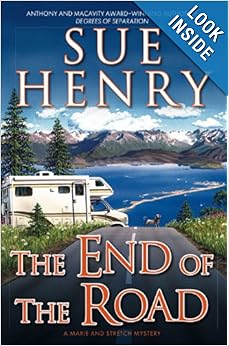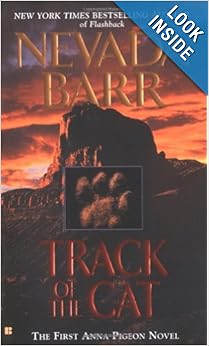The audience for The Ecuadorian Deception continues to grow, both in softback and Kindle edition. People living in South America especially seem to appreciate availability on Kindle since books in English are hard to come by and expensive there.

One of my motivations for writing this book, besides wanting to turn out a first-rate mystery, was to acquaint people with two incredible cities, Guayaquil and Cuenca. Over the years I have particularly enjoyed writers who took their audience on a grand tour of real places with a rip-roaring cast of characters.
Sue Henry is particularly known for what I call Travel Mysteries. Her heroine Maxie and faithful traveling companion Stretch the weenie dog travel around the US on adventures that leave you with a pretty good understanding of the places the story happens, as well.
My suspicion is that Ms. Henry, who originally made her reputation writing mysteries/detective novels set in her native Alaska, got the traveling jones. As she traveled about the nation, so did her alter ego Maxie.
Good for her. Better for us.

When my wife and I traveled to the Big Island of Hawaii a few years ago, Henry's book The Refuge served as an education about the history of the island's cultures, as well as introducing us to the best places to visit. It's really fun to stand in the very place an author stood when he or she was creating a yarn.
Another talented mystery writer who also provides a great travelogue for the open road is Nevada Barr. Now, let me provide this disclaimer: I don't believe you have to have foul language to have a gritty story. In fact, I'm of the Humphrey Bogart school of thought. Nobody ever said The Maltese Falcon wasn't a gritty movie, but it didn't lean on the crutch of profanity to get it there.
I very much wish Ms. Barr was less reliant on profanity. Having said that, credit where credit is due. She writes some of the most spine-tingling edge-of-your-seat material you could ever want to read. In addition, each of the stories happens in one of our national parks.
Ms. Barr is/was in a unique position to use these settings. She is a former park ranger. Her first novel, Track of the Cat, was set in Guadalupe Mountains National Park in West Texas. My favorite, Borderline, is set in Big Bend.
While traveling to the places where these mysteries is set adds to the adventure, I don't recommend reading her mystery Hard Truth while visiting Rocky Mountain National Park outside Estes Park, Colorado. The book involves the hunt for a psychopath who has stolen children and is using them for his gratification while murdering anyone who gets in his way.
That's probably not the kind of unsettling image you want while sitting beside the tranquil waters of Bear Lake or enjoying an autumn day among the aspens.
If you've got a favorite author who also takes you on the road for adventures, I'd love to know about him or her. Please comment below. Until then, enjoy these two masters of mystery. Oh, and don't forget to read the new novel from that up-and-comer Bear Mills. I'm working to build a fan base and would love you have you in on the ground floor.









